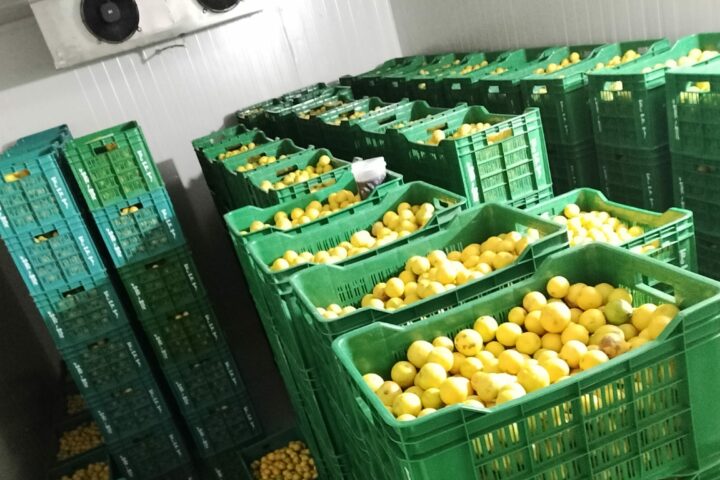New Leaf Dynamic Technologies
India
Country
Finance mobilised (USD)
970000
Biomass
Technology
Scale-up
Business Type
Project IRR (%)
34
GHG mitigation impact (tonnes of CO2/year)
6571

Farms have almost no infrastructure to cool or pre-cool produce. Ripening chambers – used to ripen fruit and vegetables to maturity for consumption – are also very rare, with a 90% shortage nation-wide. Meanwhile, there is no capacity in the country for manufacturing refrigeration compressors, which acts as a pump that moves the refrigerant through the system.
Equipment is imported from the US or Europe and uses conventional refrigeration technology that consumes large amount of grid power or diesel fuel, making units expensive to both buy and run. Their use also emits greenhouse gas emissions, since the grid in India is 82% fossil fuel powered.
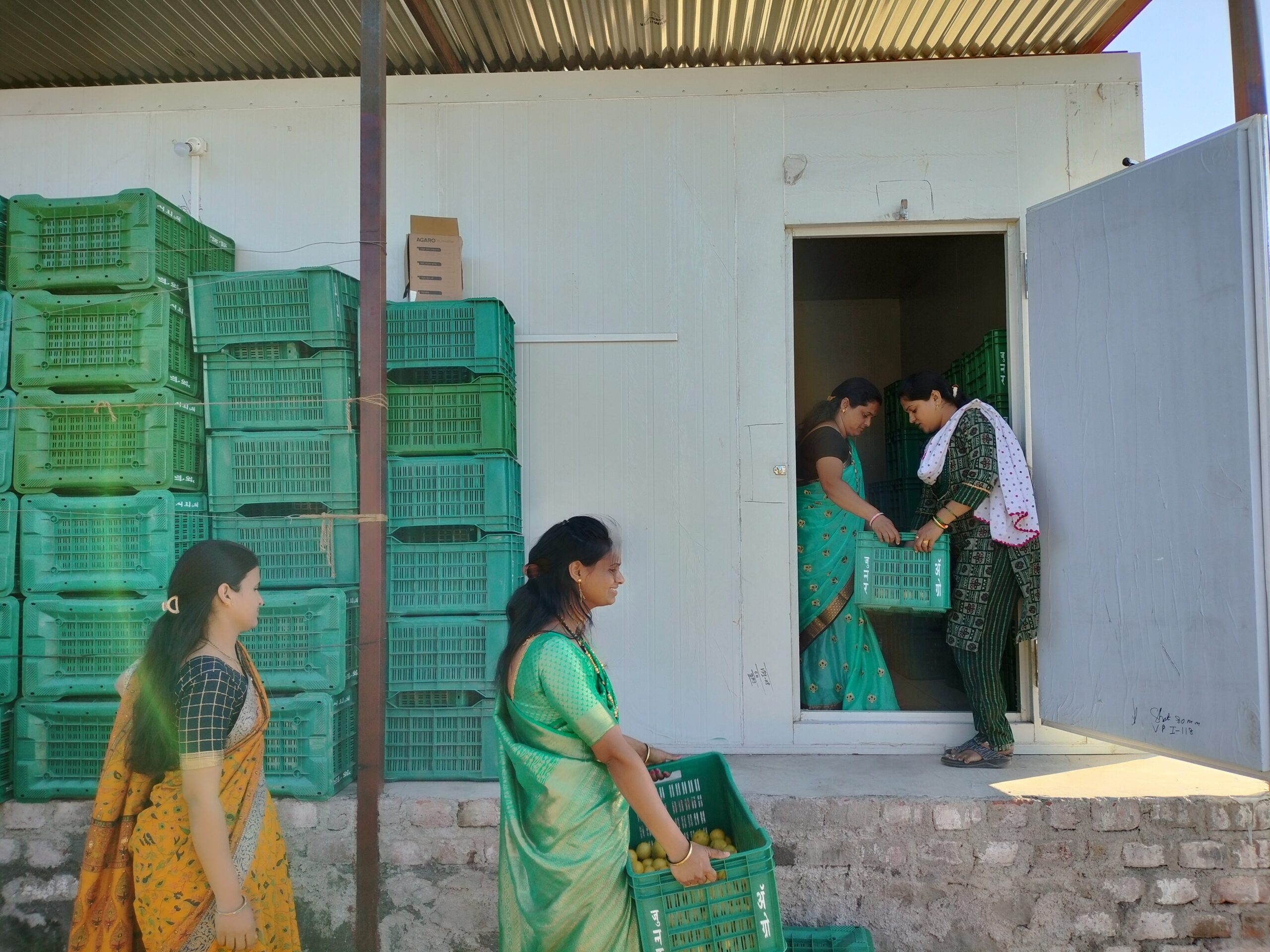
India has no testing standards, labs or technical know-how in terms of refrigeration technology
In 2012, Argawal and his father – neither of whom came from a manufacturing background, nor experience in the cold-chain sector – co-founded New Leaf Dynamic Technologies to fill this gap in the market.
“Our vision was to develop a Made in India technology that can be adopted by farmers for the cold chain in this country,” he says.
The resulting technology – dubbed GreenCHILL – is an adsorption-based refrigeration technology combined with a biomass gasification unit to provide hot water for the adsorption cycle. It has zero ozone depleting potential, nor global warming potential. Biomass units are fuelled by materials readily available on farms, such as husks of rice, wheat, coffee or mustard; cashew waste, coconut shells or waste wood.
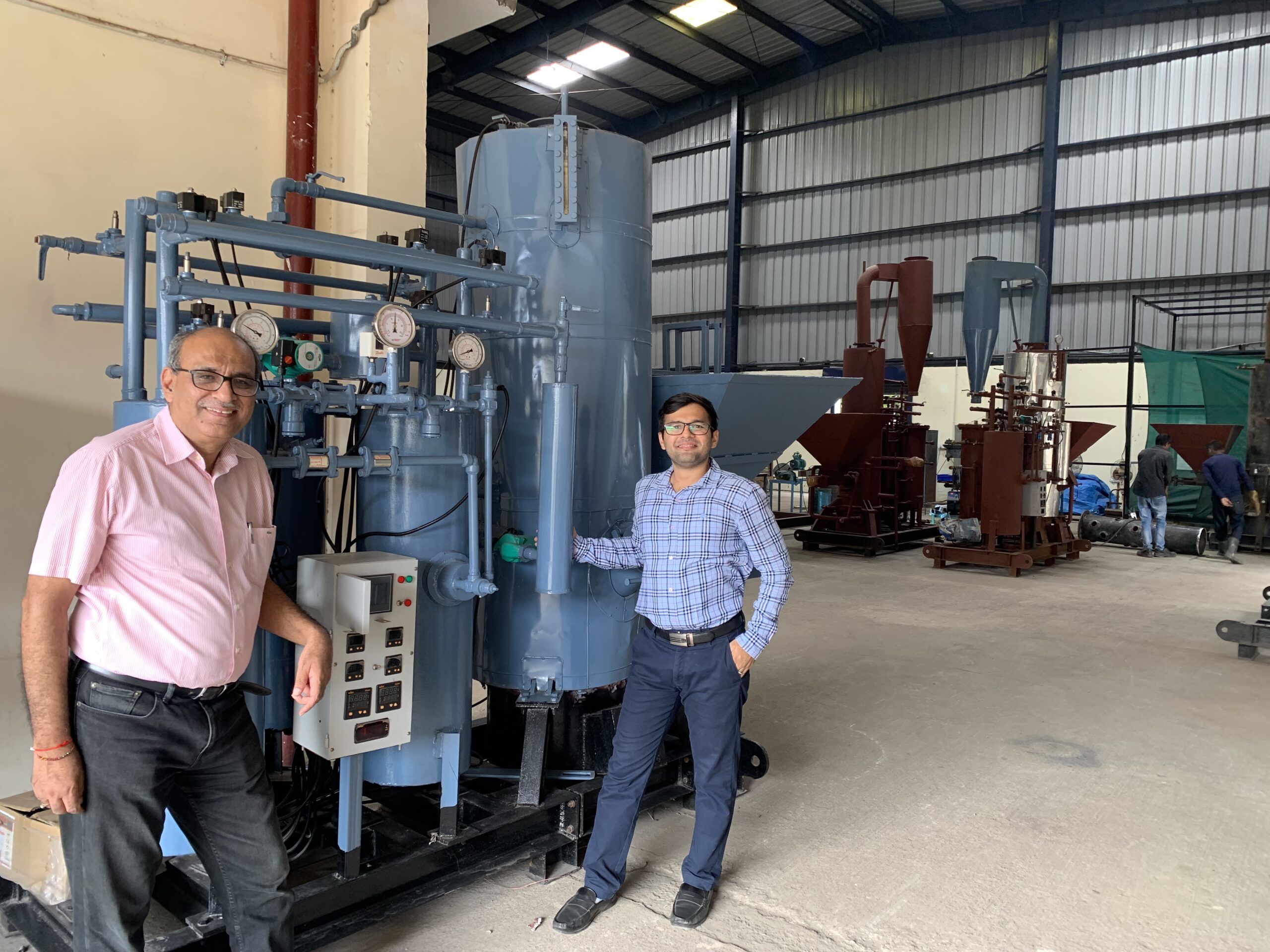
The system is multi-purpose and can be used as cold storage, pre-cooler, ripening chamber and dehydrator at farms or aggregation centres to store fruit, vegetables or flowers, and to process horticulture produce. Power consumption is cut by 95% compared with conventional refrigeration systems. In addition, the residual ash is spread back on the fields, returning some of the minerals from its original source back to the farm’s soil.
So far, GreenCHILL technology is being used by farmers across eight states to store 30 different varieties of fruits, vegetables and flowers round the year. Farmers can now run cold rooms at their farm sites at zero operational cost, using just farm waste. This has helped farmers generate an additional income of up to USD 6,000 a year by reducing post-harvest loss from 30% to just 5%. Farmers using coolers can also wait to sell their produce at the optimum price, generating more revenue from their crops. The units reduce greenhouse gas emissions by 30-40 tonnes of CO2 equivalent per year.
Having access to off-grid refrigeration technology will become increasingly important as the climate warms, Argawal says. “There’s a lot of power cuts in India. The temperature is rising, and the grid is not reliable enough to provide 24/7 power to the farm or anywhere in the cold chain,” he says.
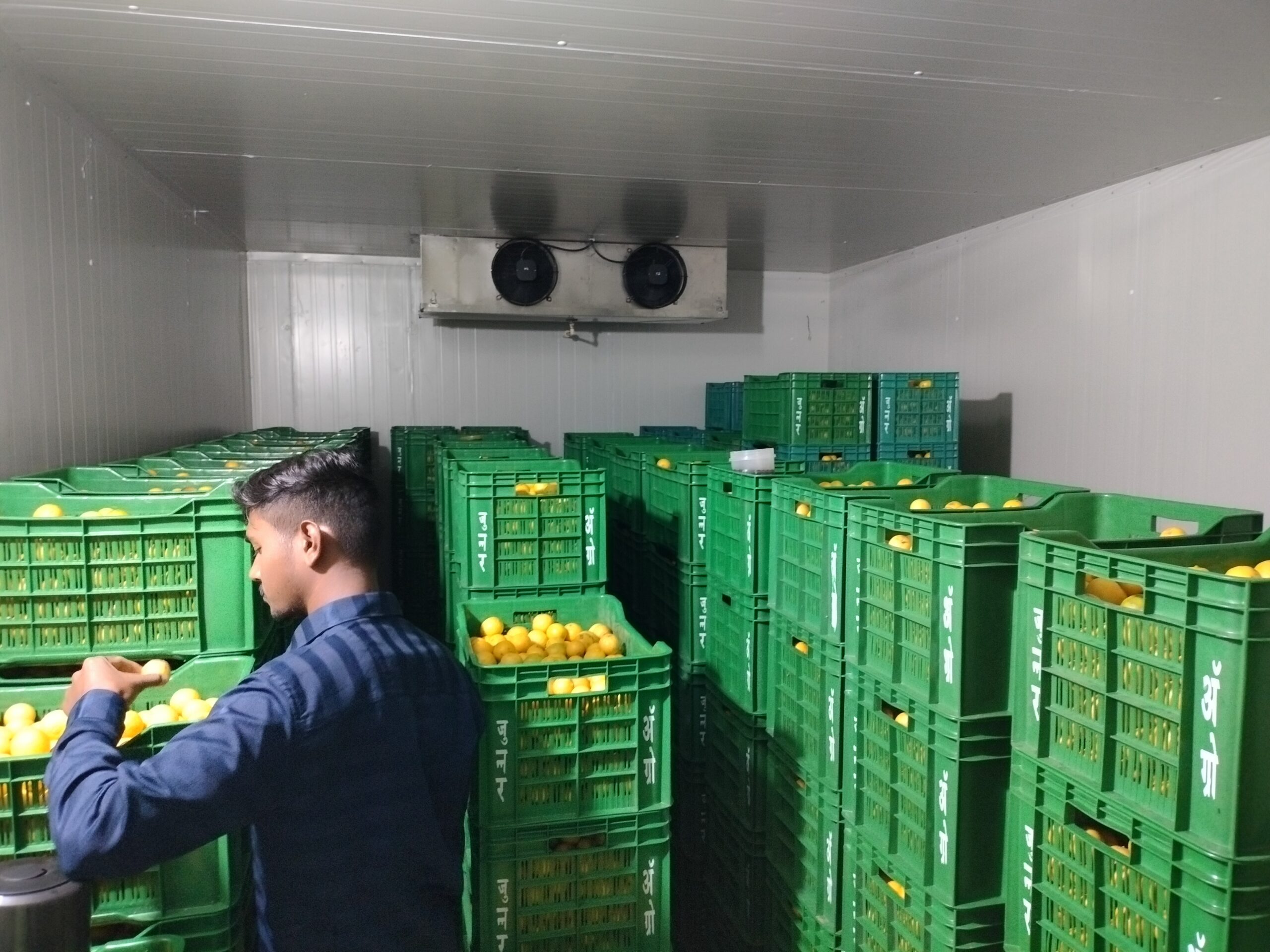
In spite of this, other refrigeration manufacturers are not even considering technology powered by renewable energy, he says.
In addition to saving farmers significant amounts of money, New Leaf’s technology helps rural women earn additional income by collecting biomass for farmers. ”Around 20-25% of New Leaf’s customers are female, and the company trains them on best practice in terms of post-harvest management”, says Argawal. “We want to make them future ready so that in next 5-10 years, whenever the cold chain is being built in India, they are the frontrunners in managing those operations”, he says.
”PFAN supported New Leaf to prepare all the documents it needed to provide to potential investors so they could carry out their due diligence”, Argwal says. This included its business plan, cash flow, balance sheet, profit and loss statements and projections. The support was instrumental in the company obtaining USD 800,000 in funding from Facebook co-founder Dustin Moskovitz.
Mentoring from PFAN also helped Argawal and his team to realise that they should focus on their main product, rather than considering potential alternative applications or markets for their technology. New Leaf now has a goal to build sales to at least 500 units a year before looking at other markets.
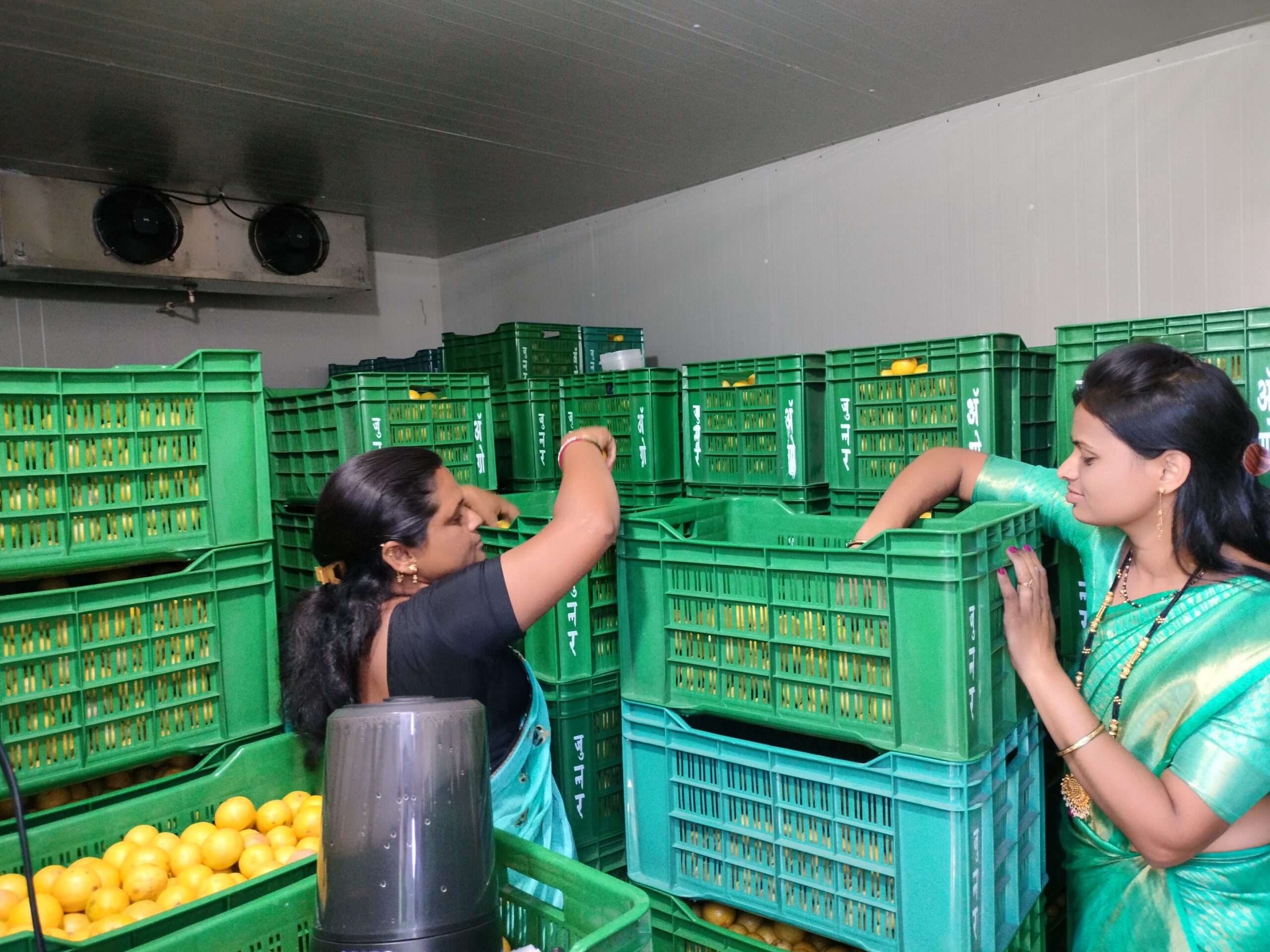
PFAN helped us see that you have to focus on the activity that brings the greatest revenue. If you keep your focus, other things will automatically move in parallel.
